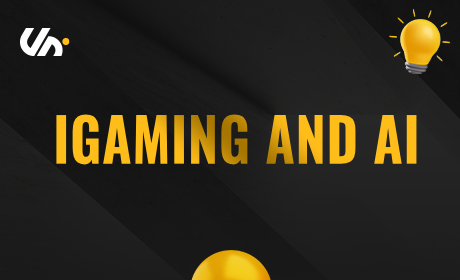Copyright @ 2023
26 Apr

A few years ago, Big Data was the biggest hype word in the business. Everyone wanted to use Big Data, and many companies invested huge amounts in cutting edge systems to be able to use and manipulate the data as much as possible.
Databases were specified, systems were built and it was all looking great until someone said “So, what do you want to analyze and calculate?”. In some companies, there is a disconnect between tech, commercial, the leadership and the owners. Companies without a clear vision are often the ones most susceptible to jump on the bandwagon of every new thing promising to be the be-all and end-all.
Nowadays, we see companies running head first into Artificial Intelligence (AI), Machine Learning (ML), Deep Learning (DL) and Active Learning (AL), basically whatever acronym they can find which makes their idea or product sound like “The next big thing”. Most of the time without even knowing what they mean. If you do this without a clear direction and vision for how it is going to lead to revenues or cost savings, you might end up disappointed.
The main terms artificial intelligence (AI) and machine learning (ML) are often used interchangeably. While the terms are related, they mean different things. If AI is when a computer can carry out a set of tasks based on instruction, ML is a machine’s ability to ingest, parse, and learn from that data itself in order to become more accurate or precise about accomplishing that task.
Deep Learning and Active Learning takes it one step further. We like to make the comparison with how Humans learn. If Machine Learning is a teacher telling you how things work and how you should do something, then Deep Learning can be compared to a baby learning how to walk. There is a lot of trial and error involved, and learning from previous attempts.
But what about Customer support? There are AI Chatbots, right?
Yes, one of the most widely discussed topics has been the use of AI in customer support. Some even go as far as predicting that by 2020, 85% of customer service interactions will be handled without the need for human agents thanks to developments in AI and automation. Personally, we think that to get to that figure, you need to count any time a person reads an FAQ-post as a “Customer Service Interaction”.
However, Customer Support is the prime area to start getting machines to help with the workload. A vast majority of customer queries can be handled with a very limited amount of information. For example, questions such as “When will my withdrawal be processed”, “Can I have a bonus?” and “Can you lock my account?” can be handled with simple algorithms and thresholds. These can handle a high percentage of requests automatically and push outliers for manual overview. As the software develops, more and more contacts will be sorted for the customer automatically.
But of course, Customer Support is just scratching the surface of what computers can assist us with when it comes to iGaming. Here are some areas we are really looking forward to seeing Machine Learning entering the stage in.
Player Classification
With Player Classification, we do not simply mean to identify problem gamblers and VIP players. Of course, identifying these kinds of players is great, but being able to group players together based on Game preferences, Deposit/Withdrawal preferences would be very beneficial.
A player who deposits €10 and plays Starburst for 10 cents might have a lot in common with someone who deposits €1,000 and plays €10 bets on Starburst. Much more in common than with someone who deposits €1,000 and plays Bonanza for €10 per spin. Many online casinos will group players based on deposit amounts, often due to lack of data or systems that are limited when it comes to data segmentation.
When it comes to player classification, it is most definitely a case of one size does not fit all, and in many cases, our systems can’t determine what “size” a player is. Heck, most of the time the systems don’t even know how many different sizes “exist”.
Game Classification
Game Classification might seem like a simple thing at first glance, but play a little more, dig a little deeper and you’ll find that it’s far from easy to accomplish. Sure, you can go the simple way of saying “Well, all Egyptian themed slots are the same right?” but you’ll soon find that, for example, Lord of the Ocean and Book of Dead have more in common than Book of Dead and Egyptian Heroes.
- Game Mechanics / Features
- Volatility
- Theme
- Bet lines / Ways / Megaways / xWays / SPLITZ or whatever you want to call them
- Game Studio (or actually, the Game Designer themselves)
- General Look and Feel (Graphics, Sounds, Anticipation spins etc)
Then comes the hard part, how are these to be weighed against each other when you have 1,000s of games? Seems a bit easier for Netflix right? Genre, Language and Actors will probably get you a long way.
What if we find out that there is no universal weight which works for everyone, but that in-fact, beauty is in the eye of the beholder, and what makes a game similar to another might vary depending on who you ask as they themselves value things differently.
Game Recommendations
Combining Player Classification with Game Classification should enable us to produce a relevant “Games you might like”-list á la Netflix.
iGaming has a bright future coming, and if we can get computers more involved in helping with the more complex calculations, we are going to shine.
However, we have to take baby steps before we can run. We need to start somewhere, and for that we need those missing links between Tech and Commercial.